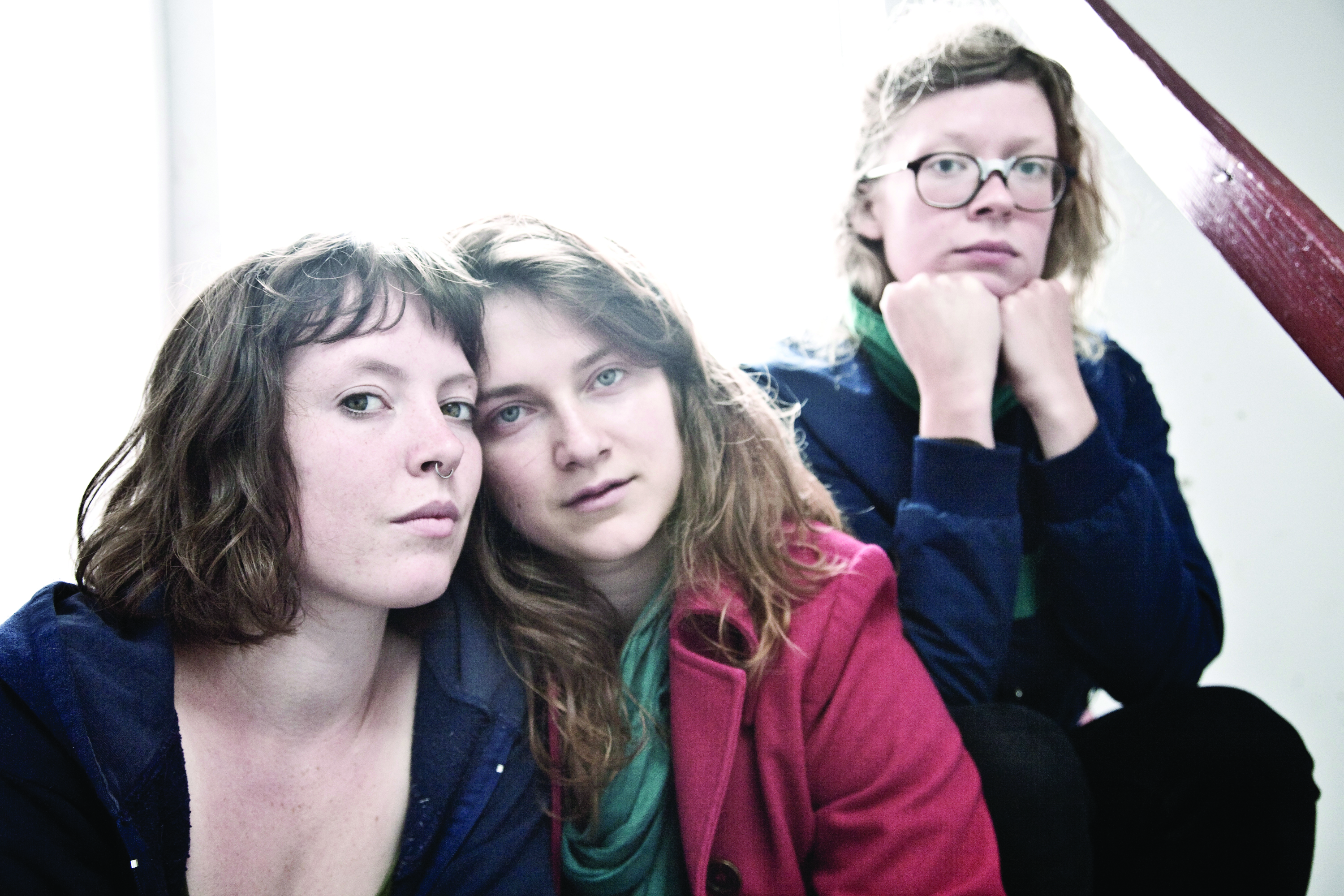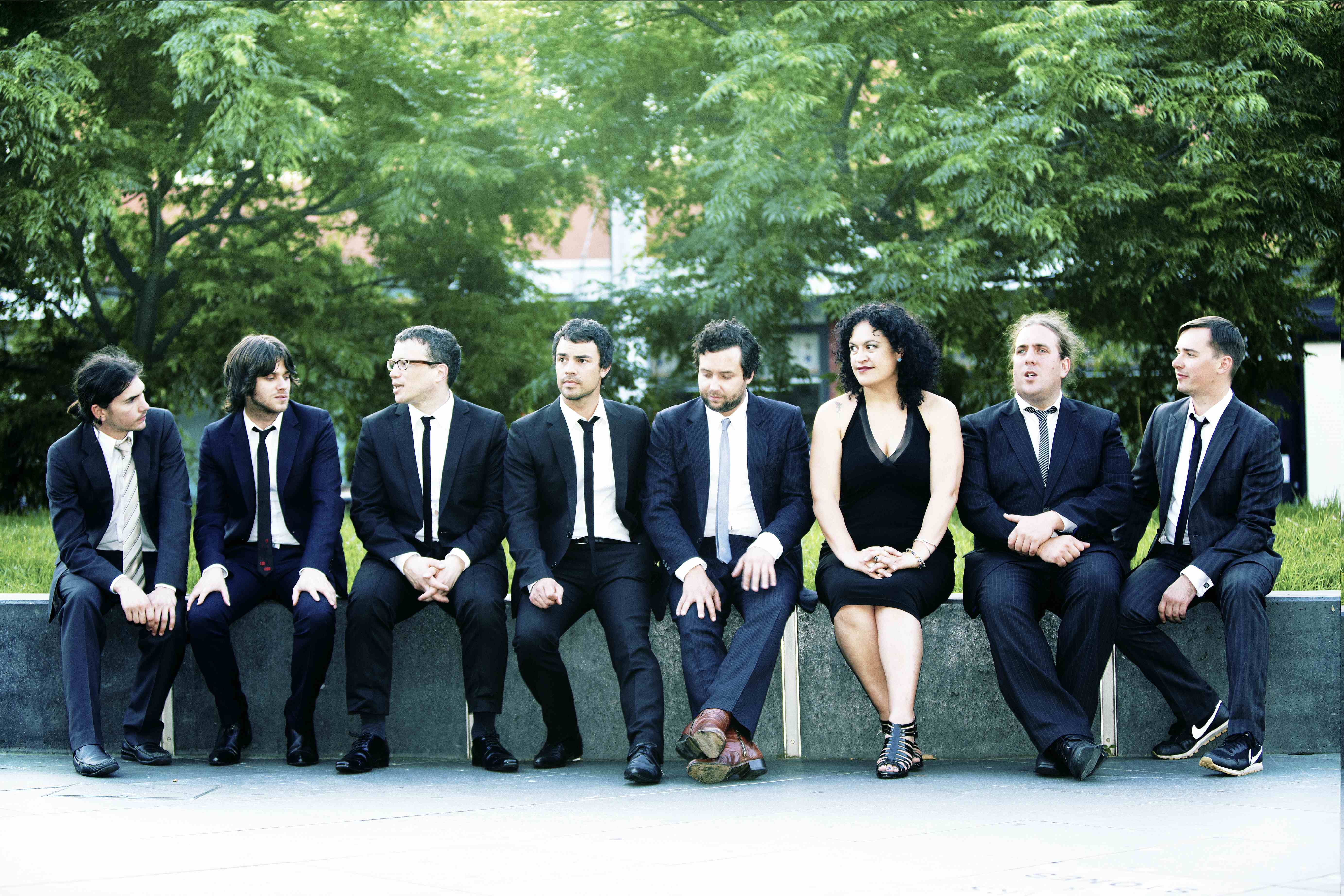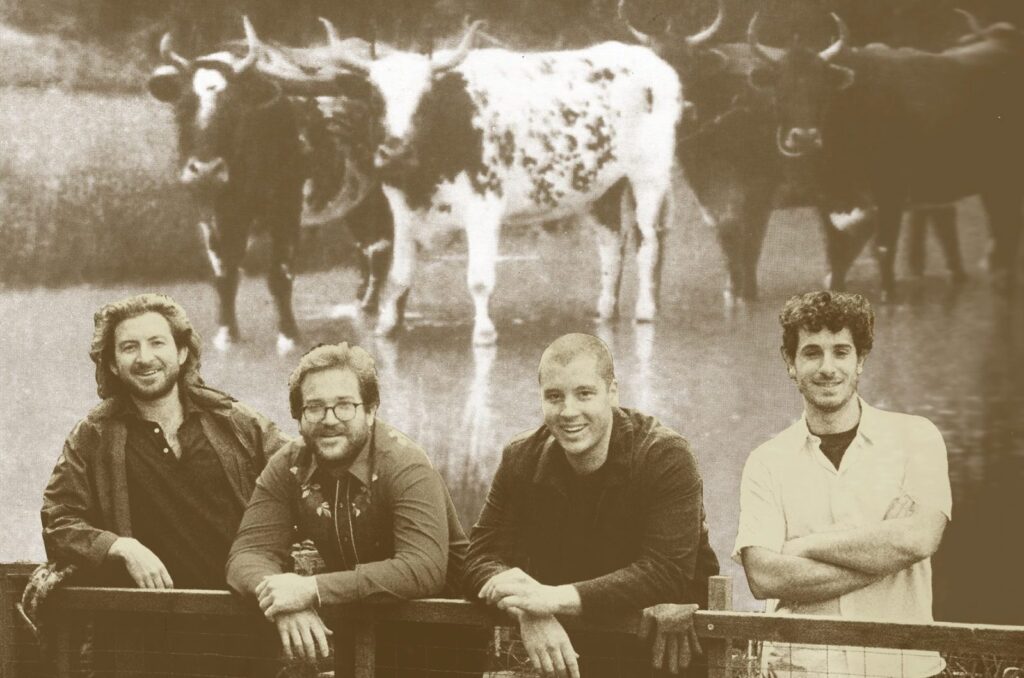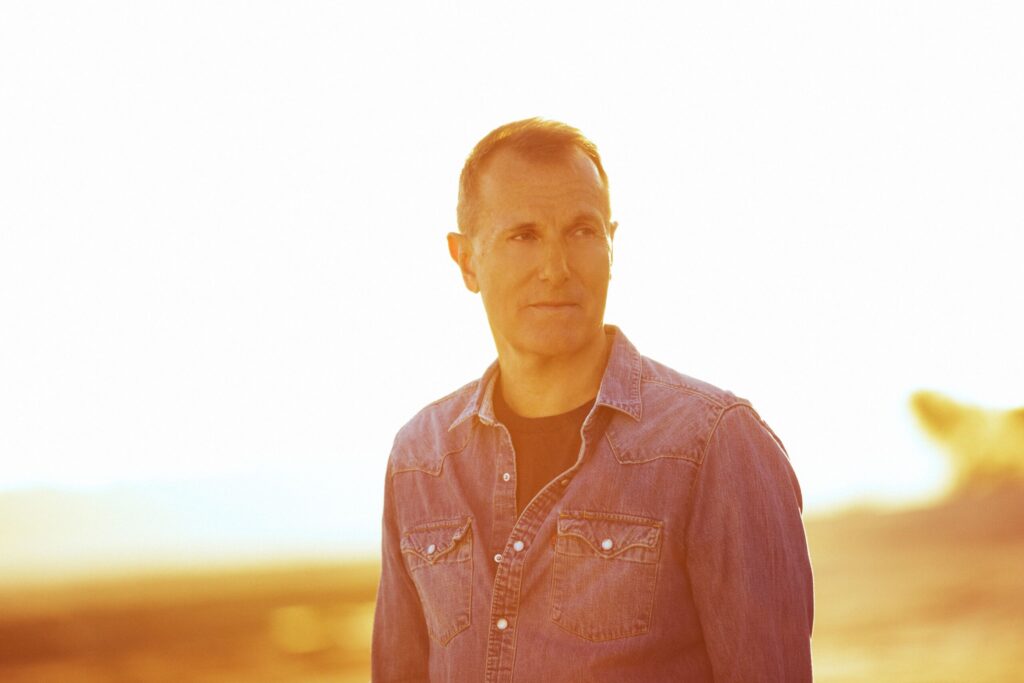Nestled away on the east coast of the United States, Vermont is one of the lesser known – in Australia, at least – States of the Union.
Nestled away on the east coast of the United States, Vermont is one of the lesser known – in Australia, at least – States of the Union. A population of just less than 700,000 makes it the second least populated state in the union; save for the cabaret crooner Moonlight In Vermont , the state lacks an iconic cultural reference point. “It’s an interesting State,” observes Alexandra Sauser-Monnig, one third of female folk a Capella trio Mountain Man, who formed in Vermont a couple of years ago. “It’s pretty old – it’s in New England. It’s pretty small, it’s very mountainous, and the older mountains are smaller. And it’s extremely cold in winter. The people who live there are really stubborn, and it has a strong movement to secede,” she chuckles.
Sauser-Monnig, Molly Sarle and Amelia Meath were studying together at Bennington College in Vermont when a chance meeting saw the trio come together as Mountain Man. “Amelia and I had become friends, and we were spending a lot of time together,” recalls Sauser-Monnig. After leaving Vermont for New Orleans, Sarle returned and dropped into the sharehouse at which Sauser-Monnig was staying. Meath overheard them singing The Dog Song, and was entranced. Within a matter of days Mountain Man were conceived, and the trio performed their first show at the band’s alma mater. The friendship between the three members has grown consistent with the band’s evolution. “Mountain Man has brought us together,” Sauser-Monnig confirms. “In this trio we have to be friends – if we weren’t concerned for each other then I don’t think it would work.”
The decision to form an a Capella band was happenstance: with none of the members of the band playing an instrument, voice became the only source of melody. “We didn’t adopt it as a style,” Sauser-Monnig recalls. “It just came about by virtue of the fact that none of us really played an instrument.” The restriction to voice has both its advantages and disadvantages. Voice, Sauser-Monnig says, provides a subtle complexity and considerable scope for interpretation and exploration. “It’s more of a focus on harmonies that we tend to have,” she explains. “Voice is a complicated thing, and we tend to be pre-occupied with the vocals in our songs.” That said, Sauser-Monnig admits Mountain Man may yet choose to deviate from the current a Capella format. “It can be a bit restricted – we’ve got plans to expand,” she admits.
With each member of Mountain Man contributing to the band’s repertoire, writing songs hasn’t so far been much of a problem. “We don’t tend to write songs together,” Sauser-Monnig confirms. “And there’s a lot of self-editing before each of us submits a song to the group to sing. There’s definitely songs that I’ve written that I don’t want Mountain Man to sing,” she admits. As for lyrical inspiration, Sauser-Monnig says her own songs tend to avoid personal experiences and observations, though the same isn’t necessarily true of her fellow band members. “I tend to keep my personal life out of my songs,” Sauser-Monnig explains. “I think that maybe Molly and Amelia focus more on the inter-personal in the songs they write, so their songs can be a bit more personal.”
Superficially at least, the band’s name is counter-intuitive to Mountain Man’s style. One would assume, for example, that a band calling itself Mountain Man would be closer to the rugged power of the Kill Devil Hills. “We get asked a lot of the time about the name,” Sauser-Monnig shrugs. “It was just a spur of the moment thing, and we didn’t think a lot about it. But by virtue of being asked about it we have thought about it a lot more. We’re all women who care a lot about gender roles and relationships – but there’s no doubt Mountain Man has been a confusing thing for some people.”
After releasing an EP in 2009, Mountain Man went back into the studio in 2010 to record the band’s debut album, Made The Harbor over an intense three-day period. “The fact that we recorded the album in just three days was circumstantial,” Sauser-Monnig explains. “We’d just come off a tour of the West Coast, and we only had three days to record. We really had to pump it out, so there wasn’t much time to think about it.”
The album was recorded in an old ice cream parlour that had been transformed into an apartment block. “The parlour happened to be an apartment that was owned by a friend of ours,” Sauser-Monnig explains. She adds that the band were more than satisfied with the album’s final authentic folk sound. “I think it’s good that we did the album,” she nods. “It’s what needed to happen at that point in our process.”
With its Celtic origins, and complex multi-cultural evolution, folk music is one of the most perplexing and invigorating of all musical genres. “I think it’s like with the Galapagos finches that Charles Darwin studied – the same species evolved on different islands. You have the same situation with folk music – the Civil War had a huge influence on folk music, and then you’ve got bluegrass that came from Wales and England. But it’s all still folk music,” Sauser-Monnig argues.
MOUNTAIN MAN play The Toff In Town this Saturday January 15 (tickets from moshtix.com.au, 1300 GET TIX or Polyester Fitzroy and City) as well as a sold out Happy Mondays show at Roof Top Bar with The Middle East on Monday January 17. MOUNTAIN MAN’s album Made The Harbor is out now through Spunk/EMI.







